From Moment to Moment: Cannabis Awakenings
Moderator’s Note: “From Moment to Moment: Cannabis Awakenings” is a guest post from Michael Peterson.
Sky
An open day, perfect for this. Sunshine, nothing on my agenda, nothing on my mind that I need to attend to, all afternoon and evening for myself. I get out of the car and start slowly walking over that hill where I can see the horizon in all directions. Silence is as deep as the blue sky above – just insect sounds, maybe a faraway airplane or a barking dog. There is nobody else visible anywhere. A few buzzards are soaring in circles. And I there is silence inside of me, a kind of joyful peace.
I stop to take my trusty old Proto Pipe, have a deep puff or two from the very potent Dutch marijuana, and a minute later, the THC molecules start affecting the neurotransmitter traffic in my brain, many parameters of my consciousness change in that familiar kind of way, and I am here again in that deeply mysterious place.
This time it feels very strong (because I hadn’t smoked anything for a month or two), strong enough to easily push my mind to the side, and a powerful force establishes itself, filling me up completely – a different mode of consciousness. It feels much stronger than my ideas, wants, my personality, maybe because I am gladly going along with it. My thoughts subside effortlessly, my mind is clear – utterly silent and simple, like a transparent substance, like the empty sky – and I feel my complete body in a very deep, palpable way, much more deeply than I usually feel it in my normal, sober consciousness.
I am here.
Knowing
My ‘spiritual’ process, whatever that really is, has been going on for more than four decades, and it has developed and deepened in ways that I had no idea existed and that I am eternally thankful for. And it continues to slowly evolve, occasionally in surprising ways. Judging from the various teachings I grew up with, I have only gotten ‘my feet wet’, and although something substantial has changed in the way I experience myself, much more is possible.
Although I had a few remarkable experiences on psychedelics in my youth (with LSD and Psilocybin), they played no central role in this process. Likewise, I wouldn’t say that Cannabis opened me up to spirituality – my own spirituality evolved without the aid of drugs, but now, they add an interesting dimension to it, a dimension that I could not have experienced without the many years of spiritual training.
A few paragraphs about spirituality as I experienced it independent of drugs:
The Zen book that originally kindled my interest in spirituality carried the subtitle ‘teaching, practice, and enlightenment’. In the beginning, when I was 20 or so, I believed it would be that straightforward, and maybe it really is to some people. For me, it is a long and winding road, infinitely complex and surprising, frustrating and rewarding.
I sat on Zen mats, facing the wall for decades, increasingly frustrated because I believed it was about ‘getting it’, and I wasn’t really ‘getting it’ at all. Of course that is part of the plan – Zen students (at least in the tradition that I was in) are skillfully pushed to the edge of their comfort zones, forced to use their willpower to achieve the impossible, eventually finding that it is truly impossible, and at some point, they give up. That movement can push them over the brink of conceptual thinking, and something opens up that goes beyond it – a kensho experience: usually, not a deep ‘enlightenment’ yet but a first taste of it, opening the mind in a way that makes deeper understanding possible.
I couldn’t reach that point, I gave up before I was ripe. That kind of superhuman willpower orientation didn’t seem to be my thing, it deeply discouraged me and something about it felt wrong. Maybe I didn’t feel the drive strongly enough to give everything, but something was missing for me in the way it was done. I still love the scent of Zen but it is not my way.
Even the following years of less formal meditative inquiry with Krishnamurti-influenced former Zen teacher Toni Packer didn’t unblock me, although she clearly feels like my main teacher now – I learned a lot from her that went way beyond my Zen training: a recognition of how the human mind works, of the ways we are seemingly trapped in conditioning and beliefs, and most importantly, the perspective of total freedom inherent in every moment, based on inquiring into and clear, direct seeing of what is really here, beyond concepts and opinions, wants and fears. I no longer follow any formal spiritual practice these days but if I do anything, this is what I do – inquiring and seeing from moment to moment. After all these years, this has become deeply ingrained into how I meet reality.
Toni’s approach was not about ‘getting it’. It was deeply inspired by Krishnamurti’s teaching which is an example for what is called ‘via negativa’ – Krishnamurti never (except in his diaries) talked about what it is like to be enlightened, only about what holds us back. Back in the 90s however, I still suffered deeply from that willpower-based Zen perspective and from the idea that there is something to be gained, and while really taking in Toni’s teaching, at the end of the day I still believed I wasn’t there yet, and I was frustrated and increasingly hopeless. I believed that I understood Toni’s simple words, but I did not, I could not.
I asked an old Zen friend what to do, and she recommended that I try another spiritual school called ‘Ridhwan’ that she had heard good things about, so I did. Ridhwan draws its wisdom from many traditions, is not all-or-nothing-oriented, and instead puts much more emphasis on psychological knowledge, therapeutic work, and self-exploration before delving into the more ‘spiritual’ realm. The Ridhwan view of spirituality is complex and multidimensional. Presence and the non-dual are important pieces of it but it goes way beyond that. While other traditions seem to suggest that once one ‘gets it’, that is all there is to it, Ridhwan emphasizes that there is no end to waking up. That open, multidimensional attitude felt like a relief to me after the one-pointedness of Zen. I have been with this school since – it taught me essential things about myself that haven’t been part either of Zen or of Toni Packer’s teaching.
And then shortly after starting with this, in early 2002, I had some sort of opening experience, completely unexpected, during one of my first Ridhwan retreats. (Maybe it might have qualified as a Zen ‘kensho’ but I didn’t bother to go to a Zen master to have it confirmed, so ‘kensho’ is just a word I use here for whatever it was I experienced.) While answering a ‘repeated question’ exercise (‘tell me a way you are present now’) something fundamental about reality suddenly opened in a powerful way that can’t really be put into words. The main ingredient was that I saw directly that underneath the differences and forms, everything is the same one ‘thing’, nondual, spaceless, timeless, beyond distinction and description and entirely beyond human words and concepts. It was not an insight about me, I didn’t even occur during that process, it felt as if I didn’t exist. While I was absolutely awake and clear, there was nothing in my head – no ‘me’ feeling, no thoughts, complete emptiness between my ears – just a transparent witness was left who saw this. My mind was literally blown, leaving me in a state of absolute peace and freedom and stunned wonderment for the rest of the day. And I was surprised about the complete effortlessness – it felt very simple and natural.
It seems as if during all the years of Zen meditation and meditative inquiry, something had ripened, without any awareness of it on my side, and finally, a fruit fell into my lap. Surprisingly, I knew this fruit, although I had never experienced it before – it was a deep part of myself that I suddenly recognized, and I was myself much deeper than ever.
My life changed after this (not abruptly, it took years but here was a turning point). Even though that revelation had disappeared the next day and that absolute peace never came back in the same overwhelming way, something new developed in me since this opening – a new place, a distinct mode of being that occasionally takes over, subtly or strongly (with and without drugs). When it takes over, there is suddenly a simple and entirely effortless mindfulness, a deep clarity, a continuous being here consciously, an overwhelming lucidity. That mindfulness feels held by a subtle wordless confidence, a knowing, a being home. It feels as if I know something deeply and intimately in my heart now – clearly deeper than my personality. Strangely, I can’t even say what it is about, what it is that I know – all possible descriptions wouldn’t do it justice. It is utterly significant but entirely without conceptual meaning. It is very quiet and subtle and somehow powerful at the same time when it shows up. While it appears strongly, it completely replaces the old ‘me’ I used to be. And it seems to follow its own plan – I am not being asked, I don’t know what the plan is, I can just be a witness to it.
I have come to call this mode of being ‘Presence’, just to have a word for it. Other people might have a different understanding of that term, and there might be other words for my experience.
The main ingredient of this mode of being is a deep, effortless, thoughtless mindfulness, a being conscious of all phenomena in the present moment, but there is a meta-awareness on top of it which is conscious of the mindfulness, seeing itself and seeing the seeing of itself, creating a Douglas Hofstadter kind of recursiveness while staying entirely non-conceptual.
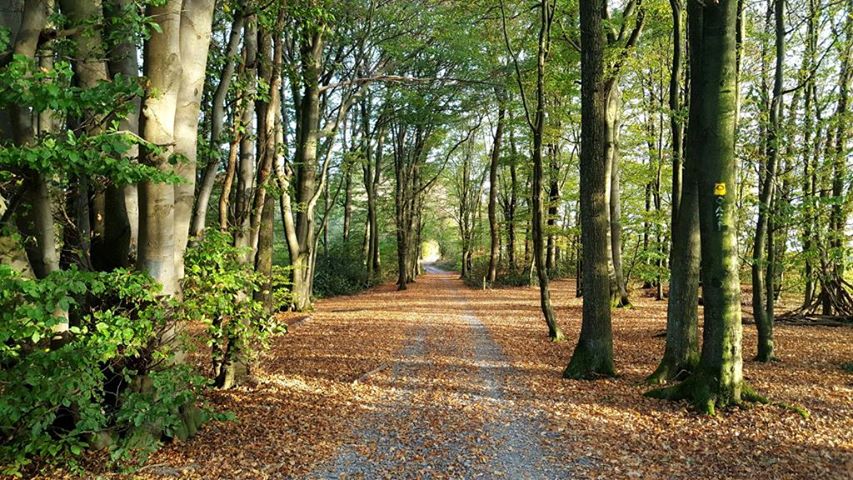
Presence
As Eckhart Tolle and countless others have pointed out, there is always just Now, this indescribable moment, as past and future only exist in the mind. Now, if experienced directly, without conceptual overlays, has no duration, and it does not really ‘move through time’ – seen deeply, it rather seems to eternally stand still while everything changes inside of it. No matter if we experience this deep Now consciously, or if we are lost in the dream of thoughts – the fact of experience, of awareness in this moment is always here, constant, like an open field in which everything appears. Nondual awakening is recognizing that we are not a person – we are this awareness in which the person appears.
The nondual, constant fact of awareness, even during unconscious thinking, is not yet something I can easily recognize. My perspective is not nondual, I still mostly feel like a person that has awareness and not like awareness that has a person. What I can see and experience, and what is true regardless of the perspective, is presence – a mode of being here in a conscious, awake way, rather than being lost in unconscious and automatic thinking, emotions, or self-images.
On a simple level, that awakeness is something known to everyone: after the immersion in a thought, a dialogue, an activity, one simply comes back to an awareness of being here and now for a moment. Usually though it just takes a millisecond to the next immersion in a thought, so that short moment of waking up doesn’t even get noticed – it is too simple, and nothing special seems to happen, so we go back to ego centered daydreaming which is what we usually do all day. In fact, most people are continuously thinking – or continuously dreaming, as Gurdjieff pointed out. They believe they are awake but they are actually immersed in a virtual reality that is superimposed on what is actually here, just like people who are always busy with their smartphones, missing all of real life, or worse – people who text while driving.
But if one becomes interested in this, and if even a little space is consciously noticed, thought and identification can be clearly seen, and on seeing, they drop away. If the empty space between thoughts gets extended through meditation or other practices, and waking up from thought happens more often, knowing oneself as this space can become a conscious basis for living. If one eventually learns to effortlessly become more or less free of thought for seconds or minutes, being consciously here, and once that recognition has happened, then this thoughtless awareness can become very deep, and that changes everything. In the absence of thoughts and concepts of any kind, ego and personality can’t manifest, and something else manifests instead, an awakeness that is beyond words.
The presence state that became available to me in 2002 followed the kensho – it actually seemed to be an effect, a by-product of that direct understanding in some way, a different perspective, a new way of experiencing life that suddenly became available. Looking closely at it, it is actually not even something new, but I never recognized it before. It is just a state, but a state that is aligned with reality, entirely different from the ego identified state which feels like a dream in comparison.
Presence and the clear seeing that I learned from Toni Packer (and that I truly understand only now) are directly linked. There is a deep freedom in the ability to clearly recognize illusory thought, and to immediately return to presence, to clarity, openness, non-identification. This can happen many times per minute. It is a certain way to use the brain, based on awareness instead of conditioned conceptual thinking.
I no longer believe or trust my conditioned old thoughts. I trust in something else now, and that opened a door. There is a subtle psychological / therapeutic / spiritual process going on in me, quite different from what I imagined it to be like in the beginning. I don’t really know where it is going, but surprisingly, I find myself loving the fact that I don’t know. It is mysterious and deep and dark and I cannot control it, but for some reason, I trust it totally. Wonderful! That strange feeling of quiet confidence, of knowing is usually there whenever I look for it. There is a quiet, very subtle feeling of being home in myself that I didn’t seem to know before that opening, even when presence is not strongly felt.
And then, very occasionally, a deep, powerful, lucid presence shows up and wipes away all of my ego-based thoughts for a while, making me feel as if I’d rise above the clouds of confusion, seeing the simplicity of the empty sky in all directions, being free. This deep presence establishes itself as a stable mode of consciousness that can last for minutes or hours. It seems to run on an inexhaustible source of energy that has nothing to do with my personality. It effortlessly clears my head from thoughts – I could still think if needed but the motivation to use the conceptual functions of my brain ceases completely: the mind is transparent. Past and future disappear entirely. There is only this then, everything is free, open, wondrous and beautiful. I know beyond doubt that I am home here, wide awake, complete, and there is a deep joy and a total peace. Even though this may appear as a ‘special’ state of consciousness when thinking about it afterwards, it is clearly the most simple, most natural state while being in it.
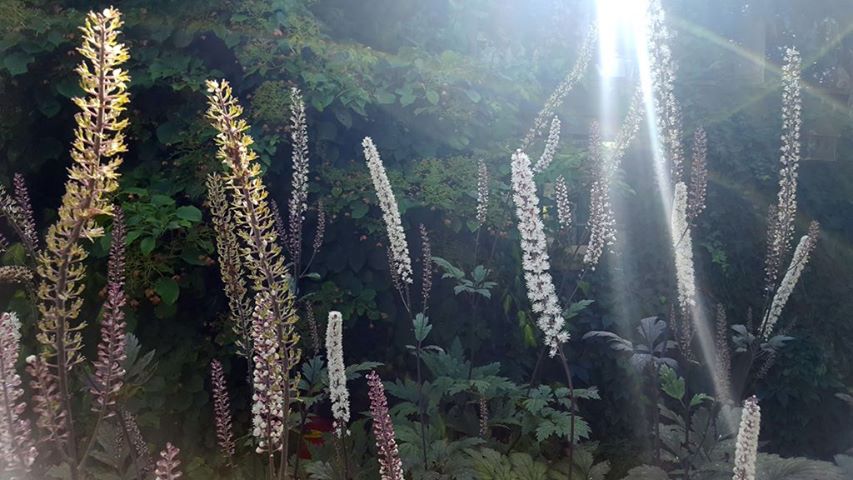
High
Before the opening ‘kensho’ experience, I loved smoking Cannabis now and then just like many of my friends. It used to do all sorts of amazing things to me. During the first years, when I was a young man, it gave me colorful detailed visions with closed eyes, especially when listening to music, eidetic animated images that left me in open-mouthed awe because I could not believe the depth of surreal detail my brain invented totally effortlessly. I saw that the brain is a magical reality production machine which made me wonder about the nature of the reality that we think is ‘really out there’. While these visions eventually wore off, the drug continued to spark a playful creativity, a deeper love of music and nature, I had fun with friends in new ways, and under the influence of the plant, the world seemed to become deeper and richer and full of mystery and meaning – but I wouldn’t say that I had any ‘spiritual’ experiences when high; on LSD, yes, but not on Cannabis.
After the awakening of presence, I started to feel less drawn to those ‘traditional’ fun effects of the drug, as wonderful as they are – because I eventually discovered that I could also be present, at home in myself, after smoking Cannabis. This stirred my curiosity big time. It went so far beyond just having fun – it felt as if I had discovered a treasure, a whole new fascinating dimension that could be explored, and on Cannabis, I actually often feel like a scientist, a discoverer of uncharted territory. Although I won’t compare my experiences to those of Alan Watts, my scientific interest seems similar to his (as described in his essay ‘Psychedelics and Religious Experience’).
As soon as I get high now, and I am on my own, my focus is involuntarily and effortlessly on mindfulness, on ‘just this’, on ‘being’, free of conditioned thinking, on this simple very moment that I now recognize as the essence of everything. Not to get something out of it, not to feel better – going into this meditative and very alert state simply feels like the most natural thing to do, the natural position to be in.
In sober daily life I am also usually mindful and present to the moment to some extent, in an involuntary way, without trying, without even noticing, probably due to the years of Zen training, but during the drug experience this state of mind seems to be much deeper and more easily accessible, usually without any effort. It feels as if it is driven by an energy of love: Being here and now, being home in myself is apparently what I love most now. Often presence comes effortlessly with the drug, sometimes not, but it draws me in, it feels like a magnetic force, I can’t help it. I used to love to listen to music on Cannabis, it was a wonderful deep experience – but just to be present is so much more interesting and real.
So from time to time, I take an afternoon off to smoke a small amount of weed, and I walk through nature, continuing my research of this mostly unknown continent of consciousness while I enjoy and celebrate and love each moment. I always do this alone and in places where I don’t have to interact with people much – not because I don’t like people but because interaction can easily complicate experience, triggers the mind, and makes it more difficult to find and stay in silence and deep presence. Meditation retreats are usually silent, for the same reason.
Finding myself
“The winds of grace are always blowing, but it is you who must raise your sails.” – Rabindranath Tagore
Very often after having smoked Cannabis, some depth of presence is immediately available for me. I don’t know how it works but I simply remember it, and there it is. I don’t make it happen. It is more like taking an inner position of faith. I have been here often enough that I have faith in it, just like I have faith in my ability to ride a bicycle, so I take the bicycle and ride – even though I don’t really technically ‘know’ how to ride it, when looking at it closely – but something in me that doesn’t need words knows how to do it.
Depending on circumstances though, finding myself sometimes isn’t that easy, for various reasons. It usually has to do with the good old ‘set and setting’. While I can easily create a positive setting (by taking a walk in nature on a beautiful day), the set – my internal situation – can turn out to be less than optimal, in a subtle kind of way, maybe so subtle that I didn’t notice it before taking the drug. How to deal with it?
Occasionally I miscalculate the dosage, and the drug kicks in in an overwhelming way. If it is way too strong, there can even be fear because it seems to be more than I can take.
Sometimes clarity is missing (maybe because my body lacks energy due to sickness or tiredness, or there is some problem or nagging thought or stress that I can’t let go of), and I feel confused, dissociated in a way, just being present enough to notice that there is some block, some unconscious, dark lump of unhappiness or confusion or sadness or resentment. Ok, fine, so this is what I find then! Not what I had hoped for maybe but this is what reality presents to me.
In situations like this, I usually start to do what in my spiritual upbringing is called ‘inquiry’. Instead of struggling, I try to relax, surrender, and get interested in what is really here, and I look closely at it from all sides. What is this? what do we have here? what is really going on? not so much with the idea to get rid of it – that wouldn’t work – but just to see more clearly what it is. I look at it as deeply interested as if had heard an unusual sound in the night, listening with all senses open towards it, not knowing. So, whatever it is that might feel problematic or stuck: what shape, color, or texture does it have, what does it consist of? The more interested I can be, the more likely something hidden might become conscious, and the more it loses its power over me.
Of course, there is probably a story that triggered the feeling, something that hurt me or something that I keep telling myself, something that makes me unhappy. Thoughts have that kind of power over us, especially if they are voices from our superego.
If we feel bad, it is very likely that some inner critic might be busy telling us that we’re doing something wrong, that we’re not good enough, that everything should be different. The critic usually sounds like one of our parents. Most people try to argue with their superego but that won’t keep it away. In Ridhwan, we’ve been trained to recognize such superego voices quickly, and instead of arguing with them, we learned to fight them, and if possible, just to drop them. The immediate result is more internal freedom and space to look even deeper.
It does happen though that I can’t easily identify the underlying story or that I can’t clearly recognize superegos. If the problematic thoughts can’t be recognized and traced back immediately, it is not a good idea to keep thinking about what they are and where they came from. These things need to be seen in the immediacy of the moment, without thinking about it.
More important than finding out where the difficult feeling comes from is the recognition of my attitude towards the feeling. After all, what feels like a ‘difficult’ or ‘dissociated’ state is just a state, something neutral that is not in and of itself a problem – it won’t immediately kill me to feel it. Do I welcome that state, even if it is not what I had hoped for, or do I send it away, shut the door, and leave it outside? Do I create an inner conflict on top of it by rejecting it – maybe believing that that state shouldn’t be here, that it is ‘bad’ or ‘painful’, that I am suffering, that I am already so enlightened that I shouldn’t have murky states like that, that I came here to have a positive experience and then some stupid state comes along and ruins my day? Then chances are that what makes me feel bad is actually not so much the state itself but the conflict that I create because I reject it.
If I throw away all expectations, if I am open to whatever the current experience is, if I can surrender – even to my inner conflict -, ‘difficult’ states might turn out to be not really difficult – they simply are what is, and they are as interesting as all the other experiences. A higher vantage point like this means being less identified, less judging, more freedom. One higher vantage point can also be humour! Is it possible to see the humourous side of my struggling? Instead of taking these things seriously, occasionally I find myself laughing at it.
Unfortunately, sometimes I do feel identified enough to stay stuck here, and those kinds of freedom are not easily available.
Another helpful question might be: does the feeling affect the body? Can I stop looking at the thought-based story that triggered it and get more interested in how it physically manifests in this moment? is there an unconscious tension somewhere, does it materialize in the limbs, the belly, the heart, the posture, does it affect my emotions? what can I feel in my heart region? If there is an emotional side to it, can I breathe deeper into that, can I contact it? Avoiding unpleasant feelings never works – only by embracing them one becomes more whole, more loving, and potentially present.
Occasionally I don’t feel much in my body and emotions, and I feel haunted by superego-like shadows that stay nebulous and unclear. There seems to be no way to find out more even though my mind still believes that thinking about it would help. Is it possible to simply drop that kind of stuckness and instead open to the immediacy and freedom of this moment?
This can always be done simply by relaxing and focusing on what is really here: the world around me and, most importantly, this body. Sensing my arms and legs. Breathing deeply, shaking and stretching my muscles, doing some yoga or other more spontaneous movement, maybe running a little. It is important to wake up my energy center below the navel (hara in Zen, well trained in my body by years of facing the wall; kath in the Sufi traditions, basically the same thing). Sometimes I put on energizing music and dance for a few minutes. Sometimes I find myself whirling like a dervish, something I learned once – it makes me deeply happy and connected to my heart very quickly.
All these things help me to rebalance and to find myself (if I believe that I have ‘lost’ the contact to myself). The idea is not to make myself ‘feel good’ by avoiding difficult feelings. It is more to see clearly what is there. The changes that can happen then are similar to suddenly noticing an unconscious tension in the body – one would immediately relax that tension. That has nothing to do with ‘avoiding’ the tension! It is natural to relax. The same applies to emotional tensions.
Becoming deeply conscious of the body is of central importance for me – after all, as J.G. Bennett put it, it is the link between the inner and the outer world. The more I focus on being conscious of the body in a loving kind of way, the more deeply the body relaxes, and the more the body relaxes, the more the mind relaxes.
Once my body is relaxed, there are simple focusing techniques to get even more into the here and now if I want: sitting still, quieting down, and maybe just listening to the constant stream of sounds for a few minutes, without choosing, without commenting, without judging, without knowing, without tagging them – listening is always available. John Cage taught us that one can listen to everyday sounds as if they were a piece of music, as attentively as possible. What you are hearing now is something you have never heard before.
Then if I can open more, I discover that there is actually a constant stream of everything, not just sounds: world, body, thoughts, emotions, sounds, sights. Becoming conscious of that seamless stream of everything, and staying with it continuously, instead of holding on to anything in particular, is a practice called ‘continuum of awareness’ in Ridhwan. I love this practice deeply, maybe because this is what triggered my initial ‘kensho’ opening experience years ago.
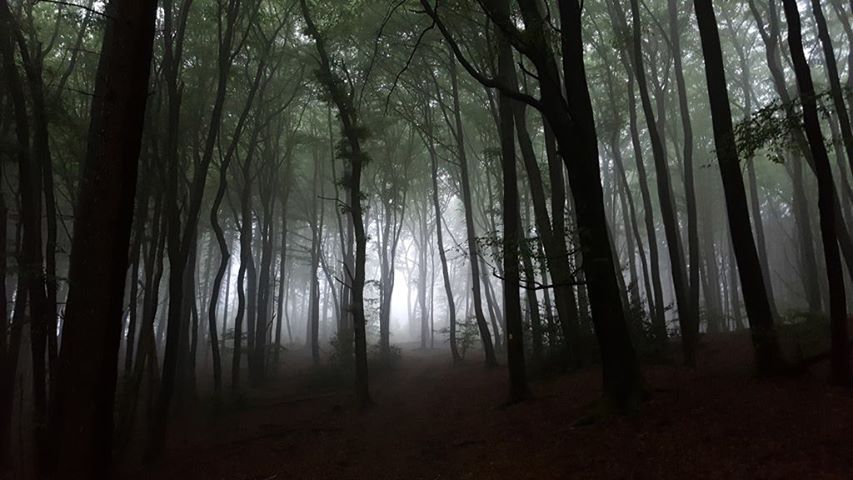
Body
I have often noticed that the body goes into an ‘alarm mode’, tensing up, as soon as I ‘leave it’, as soon as I forget it because I go into my mind, thinking about something, even about harmless things. (Of course, it tenses up even more if the thoughts are about something stressful.) Sometimes I think of the body as an animal, or as a child that gets easily scared by fearful and unconscious thoughts.
Like most people, I used to be immersed in thinking all the time for decades, and it seemed so normal that I wasn’t even aware of the deep tension that had built up because of it. It was part of normality. On Cannabis, this immersion in thinking can become even more extreme – this is a common experience for many drug users who find themselves lost in an unstoppable stream of associations that is much worse than without the drug.
The body’s autonomous intelligence with its alarm mode can wake us up though, so it is invaluable. As we can’t deliberately wake up from dreaming, we need something ‘external’ to wake us up. Often enough, momentary awakenings happen with no apparent reason, but often, some internal alarm has woken us up. If there is a sudden inner tension, maybe following a stressful thought, and if we were trained to listen to that, if we are sensitive enough to be attentive, if we recognize the alarm bell, we can wake up in an instant, and there is the chance for freedom in that moment. To some extent, spiritual development means training one’s body intelligence to become more and more attentive and aware of the inner world, of the subtle reactions that follow unconscious thoughts and the resulting emotions.
If these moments of waking up are noticed and stabilized by waking up even deeper, by refusing to follow any thought, the mind can stop entirely and presence can establish itself – then thoughts disappear like fog in the sun, and one is awake. The brain becomes quiet. Compared to deep presence, even the clearest thoughts feel like confusion.
If I am present on Cannabis, it feels especially easy to become deeply conscious of the body. In a state like this, mind and body become very calm and can relax more deeply than I ever thought was possible – there is an absolute sense of being home, of safety in presence that enables me to be so relaxed. I am at home together with this body animal which is now filled with joy and a happiness and aliveness that goes right down to my toes, because I am here with my body, because I no longer ignore it. I absolutely don’t need anything else then.
Energy
One of the most airy and hard to define ideas in spirituality is ‘energy’. That doesn’t mean that it doesn’t exist: it is just hard to find words for all the ways one can feel it – precisely because it is about feeling, about direct perception, and not about thinking. Especially on Cannabis, I find a complex world of energy when I perceive reality in a nonconceptual way. Once all knowing and all words fall away, there is only this, showing up in a multitude of ways, some subtle, some overwhelming. Habitually coming from the mind, it is sometimes difficult to me to easily open up to this alternate mode of being, but the more energy is there, the more real and alive it feels.
My Essential Movement teacher suggests to always be aware of the body as much as possible. She actually suggests to have 70% of our awareness in the body, and 30% in everything else. When we do movement in the group, giving up mind control, trusting the wisdom of our bodies instead, we get there after some hours, and that mode of being becomes stable for a while. It effectively clears the head to be grounded in the body like that, and aliveness and energy can be felt much more easily.
On Cannabis, this nonconceptual way of just feeling, of experiencing energy has become more available to me more recently. Stopping the mind (not forcefully, rather by losing interest in it), becoming aware of presence, is part of it. Sometimes I like to activate more body energy by yoga, breathing deeply, moving, stretching, shaking, following the intuition of my body. Then energy can quickly become a storm of aliveness, of immediacy in the body, and at the same time, I recognize that it is actually everywhere and in everything, not just in the body. All boundaries disappear, and I notice ‘this‘ in all things again.
Presence doesn’t always feel silent and calm. There is often a recognition of a hard to describe intensity of everything, sometimes an almost unbearable intensity (I sometimes feel that without drugs as well). A pathway to get there could be to close the eyes and experience the body without the outer body image (Eckhart Tolle calls that the Inner Body).
When concentrating on the intensity in the body, I sometimes feel my spine as if it is a column of white or golden light, radiating in all directions. I know at all times that this is just a fantasy but something about it feels very true, it helps me focus. I know very little about Kundalini but I had some experiences on Cannabis of so much energy in my spine that it started to rise and my heart suddenly opened, and I melted in tears of impersonal love.
I also noticed that when staying in this ‘just feeling’ mode of non-conceptual awareness, things lose their thing-ness, and everything can be recognized as energy. There are all sorts of energy in the body – blood circulation and breath are the first ones that can be noticed – but actually, every perception is also energy. Seeing is a different kind of energy, hearing, moving, thinking. Eventually, all these different forms of energy turn out to be different instruments of an orchestra, and reality becomes a symphony.
In this place, life feels so infinitely more real than the entirely virtual world of concepts and thinking that we are stuck in most of the time.
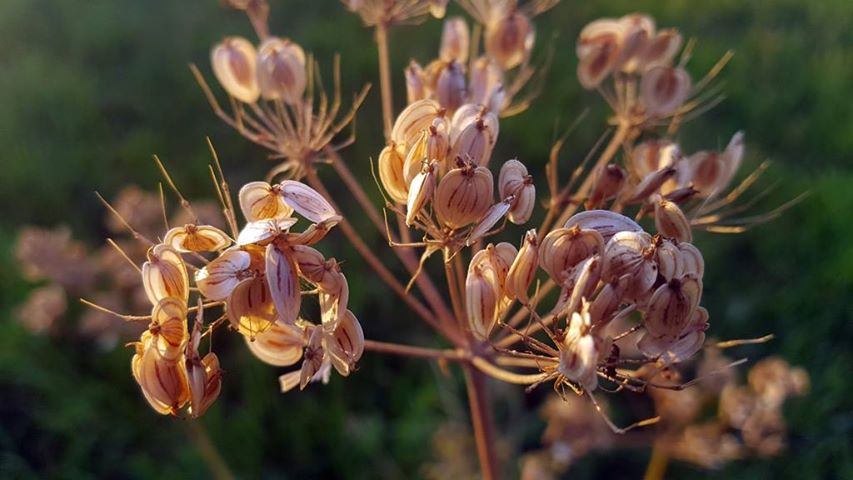
Heart
Sometimes my heart opens while being high, for example when I spontaneously think of someone I love deeply, or when I watch some random person or animal and suddenly feel their innocence and beauty and it moves me. Sometimes I look at myself, that petty little person with its pathetic old problems and all the decades of confusion and suffering, and I then feel the same love and compassion as if I was somebody outside. Sometimes I notice how much I always longed for love, how hungrily the child in me yearns for feeling held and safe and loved – and then sometimes there is a love coming up from deep inside of me, meeting this neediness, filling it up in the best possible way.
While my heart can open up to feeling anger very occasionally (if I am in a stressful situation in my life), what I usually find is a deep sadness, wordless residues of the frustrating relationship with my mother when I was still too small to handle it. Everybody has their own mix of topics, old patterns that sometimes come up and influence our experience, very often from a preverbal age.
Sometimes, maybe after intentionally breathing deeply for a minute, the overall relaxation in my body makes room for a deep release of tension, an existential tension that maybe I hadn’t even been aware of before, and then I cry and cry, going to the limits with this without actually knowing what I’m crying about – but it very clearly feels like the thing to do, and I am deeply happy while doing it. Something therapeutic is happening then in a very effective, physical kind of way and I often don’t even understand what it is about because these tensions seem to come from the deepest layers of myself, from a preverbal age, maybe from something unknown that had traumatized me.
Most people – usually, men – are trapped in their heads. I used to be a very mind-based person for most of my life, not being able to feel my heart much. ‘Heart’ seemed to be just a meaningless esoteric concept. Zen practice didn’t address this at all – many of the Zen people I met were not connected to their hearts much. One of my Sufi-oriented Ridhwan teachers encouraged me to practice being more conscious of my heart, to feel into it in a friendly, loving kind of way, and eventually I had a few overwhelming spontaneous experiences of an overflowing kind of love – not towards anyone, but just love, without an object, an internal melting, a deep intimacy in myself. Now when my heart opens like this on Cannabis, perhaps after connecting to painful places in me, it feels as if a whole deep dimension was added to my experience, as if my vision had always been flat and monochrome, and I could now suddenly see depth and colors. If I truly get out of my head and into my body and heart, if this dimension opens for me, there is an astonishing depth in everything that I wasn’t aware of before. I feel deeply alive then, like a dry desert that gets rain for the first time.
Occasionally, the heart opens into gratitude. I feel intensely grateful then for my life; for my parents, my wife, my friends, my teachers, all the people I met on the way. Grateful to my body that enabled me to experience this life, and grateful to all the lifeforms that enabled it to survive. Grateful to nature, the earth, the sky, the moon and the stars. When strong gratitude soaks my soul, it blows away all cobwebs of the mind, creating a deep kind of aliveness and presence and compassion for myself and others. It feels as if I am grown up, in a good way, just like a good mother and a good father would have been, and I can meet the small, needy parts of myself from there, and hold them lovingly.
These depths, these dimensions of being aren’t a big deal for people who are already well connected to heart and feelings, but to a mind-centered person such as me, it was a significant, and unexpected, change when this first opened up – in a quite overwhelming way, and without the influence of drugs. Now, with the occasional aid of Cannabis, the heart connection seems to get ‘trained’ and becomes accessible more easily.
Occasionally many different emotions become available to me on Cannabis. Often they begin unconsciously as pleasant or painful stories and memories, but with some practice and presence, it is easy to notice and drop that. Without any stories attached, stripped bare of ego identification, emotions can be experienced as pure forms of energy, and I can recognize then that in the center of them, there is always love – an impersonal, total love that has nothing to do with romantic love. Emotional energies don’t appear separated here – it is just our concepts that seemingly turn them into separate things -, they overlap like colors of the spectrum. In a way, they are all the same, like the colors of the rainbow are the same white light, refracted into distinct colors. Impersonal love is the intense white light at the center of what we are, and it shows up in different clothes, appearing as emotions. In this place, it becomes obvious that impersonal love is not an emotion – it is an entirely different category, a vast distinct dimension of being, containing multitudes of depths and aspects that I can just touch occasionally and that I don’t know very much about yet.
Outer Limits
“If the doors of perception were cleansed, every thing would appear to man as it is, Infinite. For man has closed himself up, till he sees all things thro’ narrow chinks of his cavern.”– William Blake
I wouldn’t say that my spiritual experiences are religious. Occasionally I do get strong notions of something totally overwhelming just out of my reach, something that is of such a different category of awe-inspiring that I imagine direct experiences of ‘God’ must be like this. But these notions always occur when I don’t feel completely present, completely transparent. It is not unlikely that they are projections, imaginations that my mind produces, so I ignore them.
The experience of presence on drugs seems to have layers – many kinds of depths are possible. One of the landmarks that I recognize often is a deeper intensity of Not-Knowing, of a nonconceptual mode of being, that can simply appear as: I suddenly can drop the knowing of where and when I am. Familiar places such as the street I live in are then seen in a completely new way, as if for the first time, and I know nothing about them – I have never been here before and I have no idea where I am and what day it is. Of course actually I do still know where and when I am, all knowledge is absolutely available to me, but I don’t have to use it – the knowing is entirely optional, it is sufficient to know that I know, I don’t have to activate the knowing all the time. Deep Not-Knowing goes along with deep seeing, hearing, and sensing – and with this, the world becomes very different from the world I am used to – immediate, alive, innocent, overwhelmingly beautiful.
Beyond this, on a good day, I sometimes reach what feels to me like the bottom of presence after taking the drug (of course, worlds can lie beyond that as I know from LSD but this is how far I came with Cannabis). As long as there are unconscious parts of me, as long as I am still busy with my ego, I am not allowed to come here. At the bottom of presence, all unconscious struggles and conflicts cease to exist. The mind becomes completely transparent, seeing itself as transparent. All old emotional pain is seen, felt and cried through if necessary, and held in unconditional love, and with this, the pain loses its grip and becomes pure life energy.
When I try to find myself here, the subject of experience, I find nothing. There is just simple experiencing: sense perceptions, here a thought, there a reaction, with lots of space in between, but no “me” in the middle as all traces of that “me” only consist of thoughts and reactions all of which can be seen through – then nothing else is there. This feels like a very very simple and clear and sane state of being.
A deep peace fills my heart here, and with this peace, the world can take on a depth of meaning that goes way beyond conventional experience and beyond my personality. These places are my outer limits. Cannabis has led me here, to the outer limits and even beyond, a number of times. It feels as if I am literally outside of myself here. I have no maps of this territory. I have left conceptual knowledge far behind me, and whatever I encounter is completely new, quite different from what I knew, and very real.
Stronger drugs such as LSD can take us much further. (Professor Christopher Bache has done amazing research on this territory – his book Diamonds from Heaven is a must read for everyone interested in this topic.)
Isness
“The end of all our exploring
Will be to arrive where we started
And know the place for the first time” – T.S.Eliot
In conventional, concept-based consciousness, things are just things, but in a flat, dead kind of way – basically, we (plus a few other people) seem to occupy all the importance, and everything else (including other lifeforms) is just objects that we ignore unless they are useful to us. In nonconceptual clarity however, all things are just what they are in an entirely different way that conventional language has no words for – their simple being infuses them with a distinct ‘being’ quality, with ‘suchness’ or ‘isness’ (Huxley used the word ‘isness’ for such an experience, referring to the medieval mystic Meister Eckhart).
Everything seems to contain a deeper meaning here, a substantial significance of its own, completely regardless of ourselves, entirely independent of human words and human values. Everything is overwhelmingly here, intensely present, just by simply being – and it is not because something new was added to the world: isness has clearly always been here but we overlook it because we are preoccupied with our stories.
I find that that isness, often mysteriously combined with an intense beauty, sometimes jumps forward towards me as if so much of it is there that it can hardly be contained. I rarely experience that depth of isness without drugs. I have experienced it now and then after intense meditations though.
I am in awe about existence itself in these moments – the path I stand on, the cornfield in front of me, the mud, the clouds, the sunlight. They don’t look any different from the way they look every day but a mindshattering significance is undeniably here now, in everything, in the sheer fact of being.
The intensity of isness, the aliveness in everything can occasionally feel as if a tree or bush is no longer an object but rather a ‘somebody’, a being, a presence, maybe even a conscious, aware entity – as if I was no longer alone in nature but somebody non-human was here with me, all around me. Occasionally, when this animistic perception comes unexpectedly, plants seem to become so intensely conscious that it suddenly scares me because it feels so powerful and alien. This is Castaneda territory, a place of serious magic, and I sometimes sensed that coming here unprepared could easily become very scary, that maybe I shouldn’t go into this place too far.
When walking through a forest, I sometimes catch myself being lost in a thought, and I wake up from it, and become conscious of the moments that I missed. Being lost in thought, not being aware of the nature around me because I was busy with my imaginary ego problems, suddenly feels like a kind of arrogance, like a lack of respect for all the other beings that I can sense as alive and conscious – and as utterly precious. When I come back to being present here in the forest, each step I take, each look, each breath, each tiny moment is in direct, loving connection with nature.
Coming from the bottom of presence, there is no fear. Without fear, seeing the isness of things is deeply wondrous and amazing. Here it occurred to me a few times that I seemed to sense not just isness but something beyond that, like dignity or innocence – in twigs of a bush or even in an old fence post! The innocence I clearly sensed in the humble twigs of a bush stirred up a deep feeling of love, of respect, so deep that it almost shocked me. And the fence post, and other things around me, weren’t dead objects – they rather felt like companions that shared this life, this amazing existence with me. I wasn’t anybody special here, I was just part of a huge wave of life, as everything else. (I’d like to emphasize that these experiences were entirely free of thinking and interpretation, they were direct and clear perceptions, and very powerful.)
On other days, I don’t recognize isness but other dimensions instead. Sometimes when concepts have fallen away, I recognize the infinite complexity of everything. That recognition is in the foreground then everywhere I look, in everything I feel and think of. How strange that we can reduce something so infinitely complex and utterly magic as the body to a word: “body”, as if it were just a thing. This is how conceptual thinking works. While it enables us build space stations, it turns the world into something that is flat, dead, onedimensional, and meaningless. When the mind stops, the world turns out to be so immense and wonderful, and the infinity and multidimensionality in everything is so overwhelming that the reaction can only be awe and a continuous sense of wonder.
Simplicity
It doesn’t necessarily have to feel overwhelming – sometimes it does but very often, it is ‘just’ the simplicity of being, the freedom of everything being just what it is, that is so utterly wonderful, so deeply relieving. One could say that the deepest magic, the most wonderful mystery is that things are just what they are. When presence shines in that way, life becomes open and unlimited, naked and simple. Compared to that, my daily life existence, my habitual ego consciousness is like living in an illusory cage, in a half-transparent big plastic bubble that keeps me from experiencing anything directly and naked.
Presence feels like opening that bubble and stepping out into the world where everything is real as for the first time, pure and naked as a newborn – and so utterly simple, a simplicity that is always there but we rarely notice it. Spiritual and drug people speak about ‘peak experiences’ – I find that it is a peak experience when everything is just as it is, and although ‘far out’ experiences are endlessly fascinating and expand my horizons, it is the normality of ‘just this’ that is most rewarding, most human.
The nonconceptual clarity of ‘just this’, without identification, attachment, or judgement, is a very simple state of mind. All phenomena – perceptions, feelings, thoughts – are recognized as just forms, just as they are, without meaning, without immediately causing reactions, but imbued with isness and a depth that is not available for the ‘normal’ conceptual mind.
It is interesting how much this waking up into presence on Cannabis resembles the lucid dreaming experience. Lucid dreamers suddenly become aware of the fact that they are dreaming – while staying in the dream. It often feels like a balancing act – after becoming lucid, one can very easily wake up completely, or fall back into unconscious dreaming. While the balance can be kept, the dream continues but one is fully conscious of everything that happens – it even becomes possible to control the dream to some extent. I had this wonderful experience a few times only but I know what it feels like, I immediately recognize it if it happens. The similarity to Cannabis presence is baffling, but I am not sure what to make of this. More research is needed!
Mind
Confronted with ‘outer limits’ perceptions that have little in common with everyday experience, I am glad that I still have my critical intelligence with me, a deep clarity of mind that gets deeper through presence and seems to be completely unimpaired while on drugs – a clarity beyond knowing, beyond opinion. One might think that absence of thought and absence of knowing should create a certain dullness or even stupidity. The opposite is true – when the mind is deeply silent, intelligence shines like the sun, without saying anything, but cutting through all illusions.
I sometimes shook my head in disbelief in the strange places that I visited, but I didn’t have to follow the disbelief, nor did I have to believe anything. So although I was sensing what strongly felt like love towards a bush or dignity in a fence post, I did not have to interpret this in any way, I could easily just leave it there, not having to know, not having to think if it was real or not, not having to wonder about its meaning. Those perceptions were very concrete and palpable and they stayed like that even when divested of any ideas and concepts and meanings. Free of any interpretation, they were significant. Any interpretation would have put them into a cage – maybe into an esoteric cage made of arbitrary ideas, of gods and angels and good and bad. As I am not at all interested in any arbitrary explanation, I let them stay free. The freedom of not knowing is the main tool of a scientist, of a discoverer, of anyone interested in openness and truth.
Occasionally, I allow my mind free rein though, as it totally loves to look at all those experiences, to make theoretical models, to explain and imagine. Many impressions I get on drugs are just vague feelings, hints, inviting interpretation and conceptualization. It is very difficult to have a felt sense of the vastness of everything, for example, and then not to get drawn into a mental recognition of the multitude of dimensions in consciousness (of which we usually inhabit just a few), of how much bigger the world is than we usually are aware of (because we are so busy with ourselves and our imaginary issues and problems).
“The subjective feeling of presence of a man who lives a few decades, an insect who lives a few days, or a tortoise who lives for a few centuries, is in no way different.” – Ramesh Balsekar
A little bug crawls across the path in front of me, a blue metallic creature that lives in a world that has very little in common with my world – but somehow I am sure that not only has it a subjective experience, but also that its subjective intensity of experience is not smaller than my own. What is it like to live a bug life? Walt Whitman, in his famous poem, was conscious of the multitudes that he contained. The bug represents other multitudes, and this perspective is just one of the many dimensions. There are innumerable lifeforms on our planet alone, and there are trillions of galaxies …
Those things are all well and seem to be very true but it seems important to recognize they are something that the mind makes up. The reality of such insights is always thought based and relative while nonconceptual presence is beyond relative. Sometimes the strong tendency of my mind to think about these things feels like an addiction, and it tends to keep presence from establishing itself.
And then sometimes, in the middle of thinking, I find myself on the brink, suddenly recognizing my thought activity, and in seeing it, something steps back from it involuntarily and effortlessly, switching back to awareness of awareness, thoughtless awareness, presence – to just being here – and it seems so dead simple that I can’t believe how I could ever forget it. It is the simplest thing of all – just stop, and there it is!
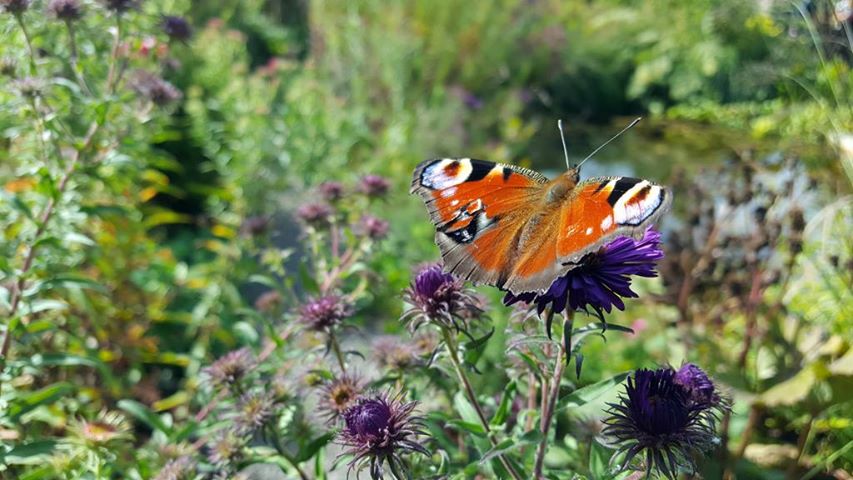
Thinking
When we grew up, our minds learned to conceptualize everything. Over the years, we learned thousands of words and built up a huge net of interconnected meaning, a net that is an abstract representation of the world. The raw, unknown, and massively complex reality of our early childhood got covered by a thick half-transparent overlay of objectification.
Every time we perceive something now, we ignore the thing itself and instead retrieve the concept for the thing, together with the net of meaning that surrounds it. That is called reification.
Objectification and reification make our minds so amazingly efficient and intelligent. This intelligence came with a cost: we live in this huge abstraction 24/7 – we cannot stop thinking, always busy synchronizing and rearranging the net of concepts with the permanent changes that are part of reality. We vaguely see reality behind the concepts but we no longer see that it is one whole undivided thing, and we forget that our conceptual overlay is just an artificial construct that helps us simplify and manage reality by fragmenting it into 10,000 things (one of them being “I” with its fictitious soap opera of history and problems and likes and dislikes).
The conceptual overlay is a permanent process, recreated in each moment by thinking. The nonconceptual dimension that we can eventually rediscover is simply reality as it always is – without the overlay. When thinking stops completely, reification stops with it, and everything is perceived as it is – naked, complex, beautiful, alive, immediate, without human meaning, without an “I” center.
Thinking – especially the immersive kind of thinking that Cannabis can induce – always narrows the wholeness of reality down to a flat mind world consisting of abstract representations. This world can either be full of confusion – the chattering ‘monkey mind’ that every meditation beginner knows well, and that can feel like an unstoppable chain of associations especially under the influence of Cannabis – or to concentrated beams of thought that light up a conceptual issue, an idea, a story. This is not a bad thing in itself of course – thinking can be creative and fun, and our intelligence is truly miraculous.
Unfortunately, thoughts are usually unconscious, and all unconscious thoughts are completely conditioned by education and past experiences and beliefs. We are functioning like robots in the unconscious thinking mode, in mind made 24/7 virtual reality. There is no freedom. Instead, we are dominated by identification with our bodymind and our thoughts which are full of fixed concepts, ideas, and ideologies, and that creates deep illusion and extreme suffering, as we see in the evening news every day.
Seen from the perspective of presence, of deep inner silence and clarity, the urge to think obsessively feels like a severe addiction – the strongest addiction of all. We are all thinking junkies, so deeply addicted that we can’t even imagine that it could be possible not to think even for a moment. We start thinking when we wake up in the morning, and keep thinking until we fall asleep. Even if there is a moment of silence, we quickly fill it as fast as possible.
As weed smokers know well, thinking on Cannabis follows a kind of dynamics quite different from everyday sober thinking. Short term memory is often seriously impaired and it is easy to get totally absorbed by seemingly very deep and meaningful trains of thoughts (even though these meanings might turn out to be of debatable value afterwards). The thinking addiction shows up in a strong way here, but if one manages to stay out of it, the resulting inner freedom can show up in an equally strong way.
Unconscious thinking takes up a large percentage of our experience. On top of the old instinctual circuits, interaction with the world is mostly reduced to habitual, conditioned concept based functioning. This makes it impossible to be more in the world, to see and hear and feel deeply, to see the whole picture, the totality of being – but only by seeing the totality, by recognizing everything directly as it is (not by ‘understanding’ it), we can be truly conscious and awake and truly grown up.
If I am not in contact with deep presence, especially if I am too enmeshed in my regular daily life, the present moment is not one of the things that I am preoccupied with. Then I am mostly interested in what my thoughts tell me – they talk about my identifications, about me and other people in my life and what they say and do, if they love me or not. The thoughts are busy with questions of surviving, work, pressure, stress, past and present, politics, opinions, likes and dislikes. I forget myself, I forget the openness of presence because my brain focuses so much on the content of the thought that keeps telling me how important it is. In forgetting myself, the body tends to tense up, especially if unconscious thinking becomes stressful, and that feels like suffering.
Coming back to presence from there always feels like a relief. When presence shows up in me, with or without drugs, all of these things lose their absolute importance (as Eckhart Tolle puts it, they are relatively important, but never absolutely important). Instead, the present moment – the immediate experience – becomes tremendously deep, colorful, and intense, and totally interesting, and it is only here that I can be without fear, at home, and free.
This is a very characteristic property of Cannabis: it seems to be very much either-or here. Either I am present and nonconceptual, remembering myself, or I am enmeshed in thinking, forgetting myself because the focus is entirely on some concept, some story, some idea. Under the influence of the drug, this either-or is much more pronounced than in the sober state where it often seems to be all mixed up in a consciousness soup. As we know, the drug is a ‘non-specific amplifier’, it emphasizes everything, whatever it is – presence or thinking -, and as everything gets more intense and deep, that polarity becomes emphasized as well.
Identification
“Identification is the only sin” – George Ivanovich Gurdjieff
This all sounds as if for me, thinking is the central problem, the reason why I suffer, but looking closely at it, is this really true? I find a clue on days when presence is really deep and strong for a while, and when I feel so settled in it that occasional trains of thoughts feel perfectly ok. I might be immersed in them for seconds or minutes, but that is not in itself painful, and I awake from them effortlessly, returning into presence. Thinking can be there, it is a part of the flow.
It seems to me that thinking only starts to feel like a problem when it is not embedded in presence, when we are lost, when it doesn’t stop, when it becomes repetitive, when painful ideas keep bugging us, making us unhappy. In presence, unhappy thoughts can be seen as what they are, and we are free even though these thoughts happen. Without presence, there is no freedom – we believe our thoughts and get enmeshed deeper and deeper.
The real culprit is not the process of thinking itself but how we relate to it. We believe our thoughts, and we identify with their content. We believe the whole ego network, and we identify with all the content that we happen to be conditioned to identify with – our self-image, our ideas, our bodies, our life, our survival instinct, our religion, our gender, our nation, our football club.
Nobody is completely free of that structure but we can become interested, we can become aware of our identifications. The more we can see how they happen, the more there can be humour and compassion towards ourselves when we notice them happening, the more real and free we can be – and maybe there can also be more compassion towards others who are stuck in identifications.
Once we become truly interested in how our minds work, we start to study ourselves – not by accumulating dead knowledge but by being aware, live, in the moment.
Sometimes the changed consciousness on Cannabis feels like a magnifying glass to me because in a certain way, the power of concentration can become very strong here. We can put this magnifying glass to work, and we can use it to study ourselves outside of the normal boundaries which can give us new perspectives and insights.
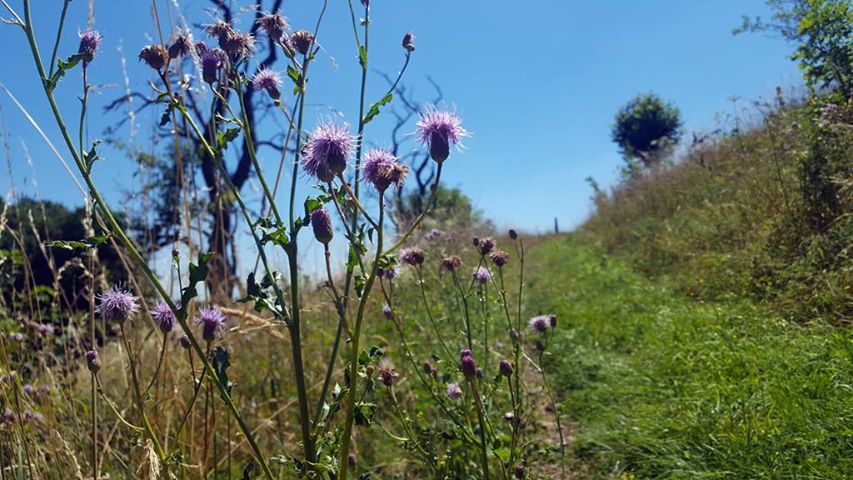
Oscillating
My Cannabis expeditions often follow a pattern of remembering and forgetting.
In the beginning, maybe after a period of balancing and finding myself, presence often appears effortlessly for a while, or even keeps very stable for a period of time, even though occasional thoughts come up – this effortless phase usually takes half an hour up to two hours. After that, I find myself oscillating between periods of presence (remembering myself), and enmeshment in the thinking mind (forgetting myself). In the beginning, I often wake up from thinking, and presence is still easily restored. Phases of thinking, trains of thought, become longer over time though, taking me away from the immediate access to remembering – eventually, after a long thought, I find myself disconnected and lost (this can happen 2-3 hours after taking the drug). Sometimes I do find the way back from this place – staying in nonconceptual body awareness, or practising ‘continuum of awareness’ – just consciously staying with whatever is noticed – these things can reestablish deep presence. But eventually forgetting wins, and even though I may still be awake, conscious, and technically present then, that deep sense of effortless clarity and essential presence is lost. This seems to happen almost every time, with variations.
The drug experience is exhausting. Towards the end of the expedition, the energy goes down, I get tired, and the clarity goes away. Consciousness becomes more fuzzy and lazy and more prone to fall into habits. Going home and having a nice cup of tea becomes a very attractive idea.
On the day following the drug experience, the energy borrowed for it is missing, and I often feel a bit tired and less inspired. Sometimes I even have a headache as my sleep seems to behave differently. Maybe this is a good thing as it keeps me from going to that addictive place more often. And Cannabis influences my dreaming – typically, in the second night, my own neurotransmitters have replaced most of the THC molecules, and I dream intensely while everything is put back into place.
Trust
The openings of mind and heart and body that happened and keep happening occasionally, with or without drugs, are precious and important, making me more whole and fulfilled as a human. I no longer believe that I have to get better at this. Ten years ago I sometimes felt deficient, ‘not quite there yet’, having found something and then lost it. These ideas have disappeared and I didn’t even notice. I am happy where I am, human and imperfect, and I actually like the idea that there are many things that I don’t see yet – there are more exciting adventures possible!
Cannabis seems to mysteriously make me much more interested in this. It kindles my spiritual fire immediately and reliably. This could feel like a problem – do I need a drug to be really interested in my consciousness? When I look inside, the clear answer is No – the drug is very interesting, no doubt about that, but it is not of essential importance.
More generally, do I ever doubt what I’m doing here? After all, none of the spiritual traditions I’ve been in endorses the use of drugs. In mainstream culture as well as in most spiritual traditions, drugs are seen as something very bad that goes against clarity of mind, to say the least. On the other hand, I grew up with a counterculture that saw psychedelics as something potentially useful, as a way to discover inner worlds, so I tried them and learned to trust my own experience instead of obeying my superego voices. I don’t care what they say!
(I was never interested in drugs that don’t belong in the psychedelics category by the way – I even don’t drink alcohol, because I find its effects boring, but then I am not very experienced with it.)
I see that Cannabis and the very positive experiences with it tend to create an addictive structure that I am not immune against. On the other hand, its effect is quickly diminished if used too often, so I rarely use it more often than maybe once per month (I always wait for optimal circumstances until I use it). If that is an addiction, it is a toy addiction, and it doesn’t feel as if it would ever become stronger.
What is actually much more addictive than the drug is presence itself. While in presence, there is no problem whatsoever, but while stuck in everyday conceptual mind, presence (that is, the idea of it) sometimes looks like a special and very attractive state of mind – peaceful, whole, pleasureable, interesting – that I don’t feel on gray Mondays, and that I sometimes desire. I only have to look twice though to recognize that, to see how I avoid facing my ego stuckness, to become interested in what that feels like. I don’t always manage to immediately become interested in that, but the capacity seems to be growing. At that point, it is almost like a necessary work to be awake, open, and curious – as Toni Packer put it, ‘The Work of This Moment’.
In my deeper personality layers, I find early childhood structures that turn my idea of the wholeness of presence into something that resembles ‘the good mother’, something that seems to promise the all-encompassing love that I don’t always feel in myself and that the small boy in me sometimes believes has to come from outside, something I idealize and yearn for, something internal that gets externalized as an object of desire. Freudian psychologists would call that an object relation with presence. It doesn’t say anything about presence – it says a lot about my ego. But I am slowly becoming more conscious of this structure … and it doesn’t feel like a problem as while it shows up, there is often compassion with myself arising, sometimes even humour.
The most addictive thing is very clearly the conceptual mind, the ego structure, the habitual way I experience myself. My familiar way of functioning, of thinking, of identification, of ego always tries to reestablish itself, and eventually, it does. Not quite as thoroughly as it used to though – there are cracks in the shell, thoughts are no longer really believed, and as long as I keep being interested in the truth of my experience, freedom is always possible – not forever, only, in Toni Packer’s words, ‘from moment to moment’.
In a way, I appear to be stuck in a dualism of states – presence vs. thinking, at home vs. identified, peaceful vs. suffering. It might seem as if I prefer the nonconceptual over the conceptual. But of course, we need both to be human. Both of these ends belong to me, to what is real, and I am slowly learning to embrace their dialectic interaction. It seems that an integration of these modes of being is developing.
Generally, I trust the process, with or without drugs. Part of what woke up in me during my initial kensho opening is a deep sense of trust, of love, of absolute loyalty towards my innermost core, towards that totally innocent center of white light in my depth. At the same time, my superego activity has become reduced considerably, so I am mostly in peace with myself. I have no idea what this process aims toward, what it is I am trusting but I would give my life to it without hesitating for an instant. If I was a religious person I might say that I feel in God’s hands. I have taken my hands off the steering wheel. I won’t interfere. All is good.
Afterword
First of all, if you are afraid to take Cannabis or feel that you should avoid using drugs because you want to adhere to the Buddhist precepts, or if you generally doubt the spiritual validity of drug experiences, then by all means, stay away from drugs. If you recognize that my spiritual understanding is limited and that I miss something crucial – you’re absolutely right, but that is not a problem to me.
Otherwise, a few words about this article:
I am neither a psychologist nor a spiritual master. Even if I talk a lot about what appears to me as general properties of the human soul and of reality, making it sound as if I knew something that is true for everyone, it is just how it appears to me, and anything I suggest just reflects what I learned and found out for myself and what works for me.
This text is based on very personal insights and experiences, unique to me. Please, don’t believe anything I (or anyone else) wrote, and do your own research and find your own path if you are interested in these things. While we certainly have basically common psychic structures, each of us is set up quite differently, so each spiritual process develops in quite different ways. And Cannabis might or might not be a helpful drug for you. It certainly won’t give you the experiences it gave me – it will give you your own experiences.
To reach a certain depth, it is helpful to use Cannabis not more often than, say, twice a month, but then in high doses, and in a setting that allows total concentration. Find out what works for you. I also believe that it is very important to have a good capacity for self-love and inner peace, a solid background of self-knowledge and meditation, an objective clarity of mind, and a capacity for conscious openness and not-knowing before experimenting with psychedelic drugs for spiritual reasons. If you don’t, your experiences might confuse you instead of supporting you, and your interpretations will tend to be limited expressions of your cultural conditioning.
If it all works well for you, great – use the drug, jump into this amazing experience, and let me know how it goes. We are fellow travellers and I’d love to hear your stories.
Finally, many thanks to Stephen Gray for encouraging me to write this. Writing this article has changed my relation to Cannabis! It was a very interesting process, difficult at first, to think about my experiences in a way that allowed me to put them into some kind of conceptual structure. And then every time I thought I was finished, and went for another walk on Cannabis, I realized new aspects that needed to be mentioned. Now I really have to learn to come back to pure experiencing, without my intellect immediately putting the experiences somewhere into the structure I created. So funny how our minds work!

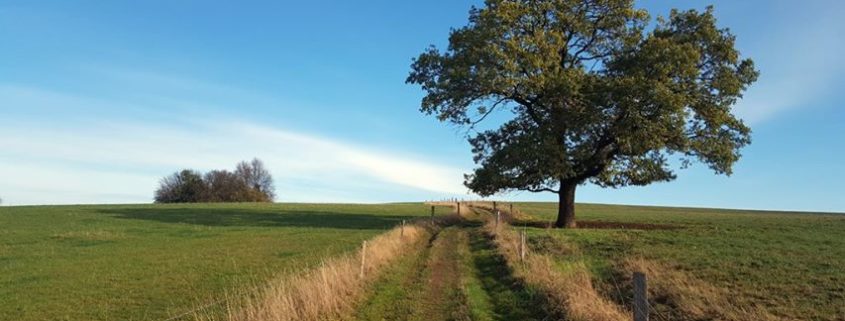
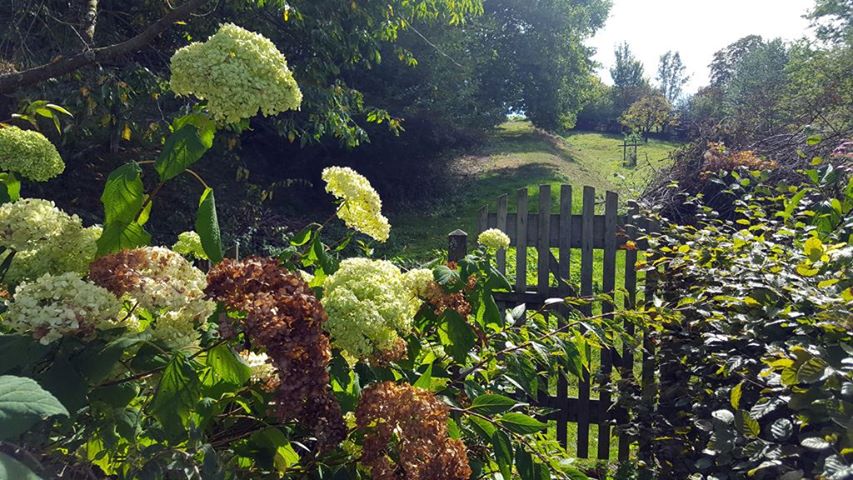

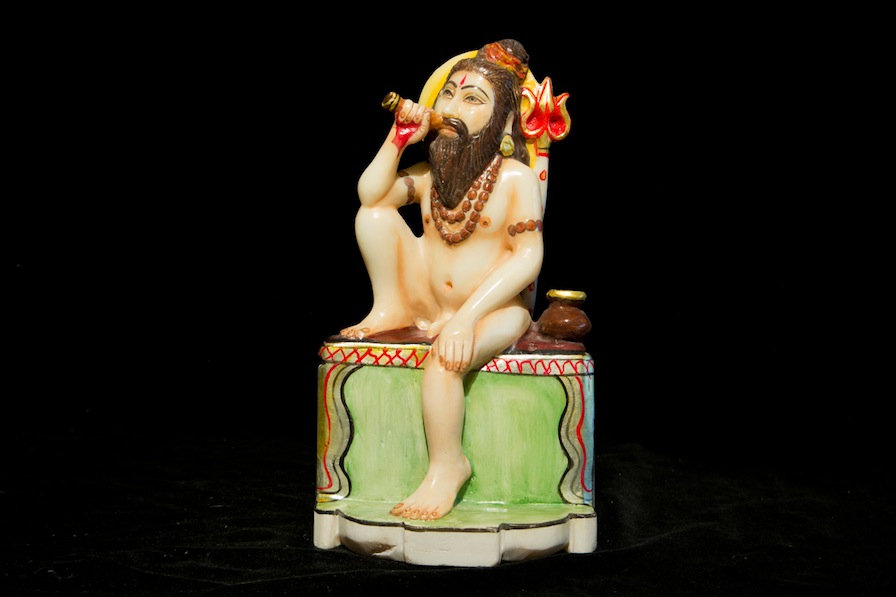

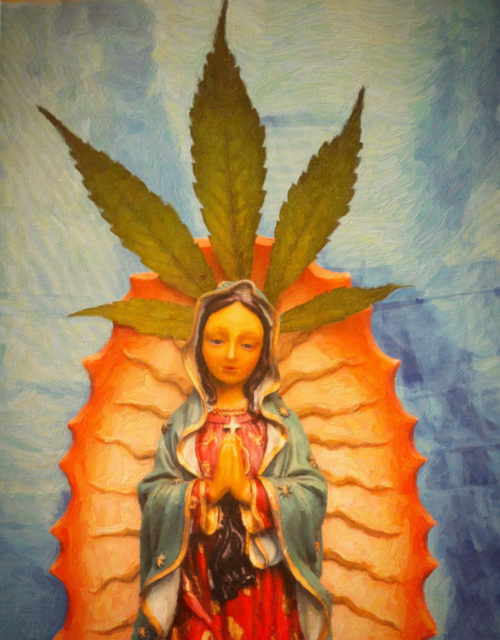

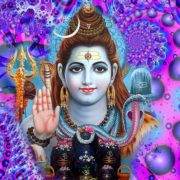
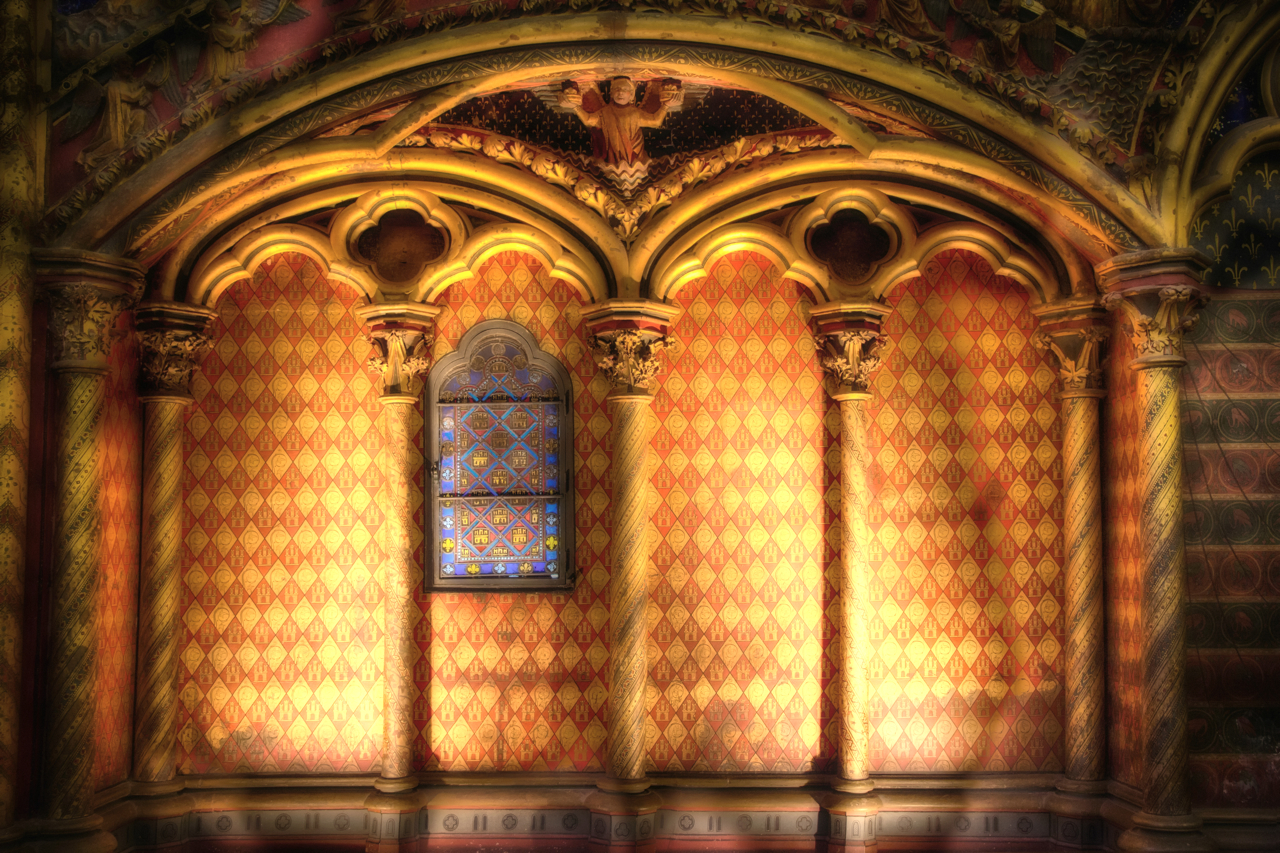
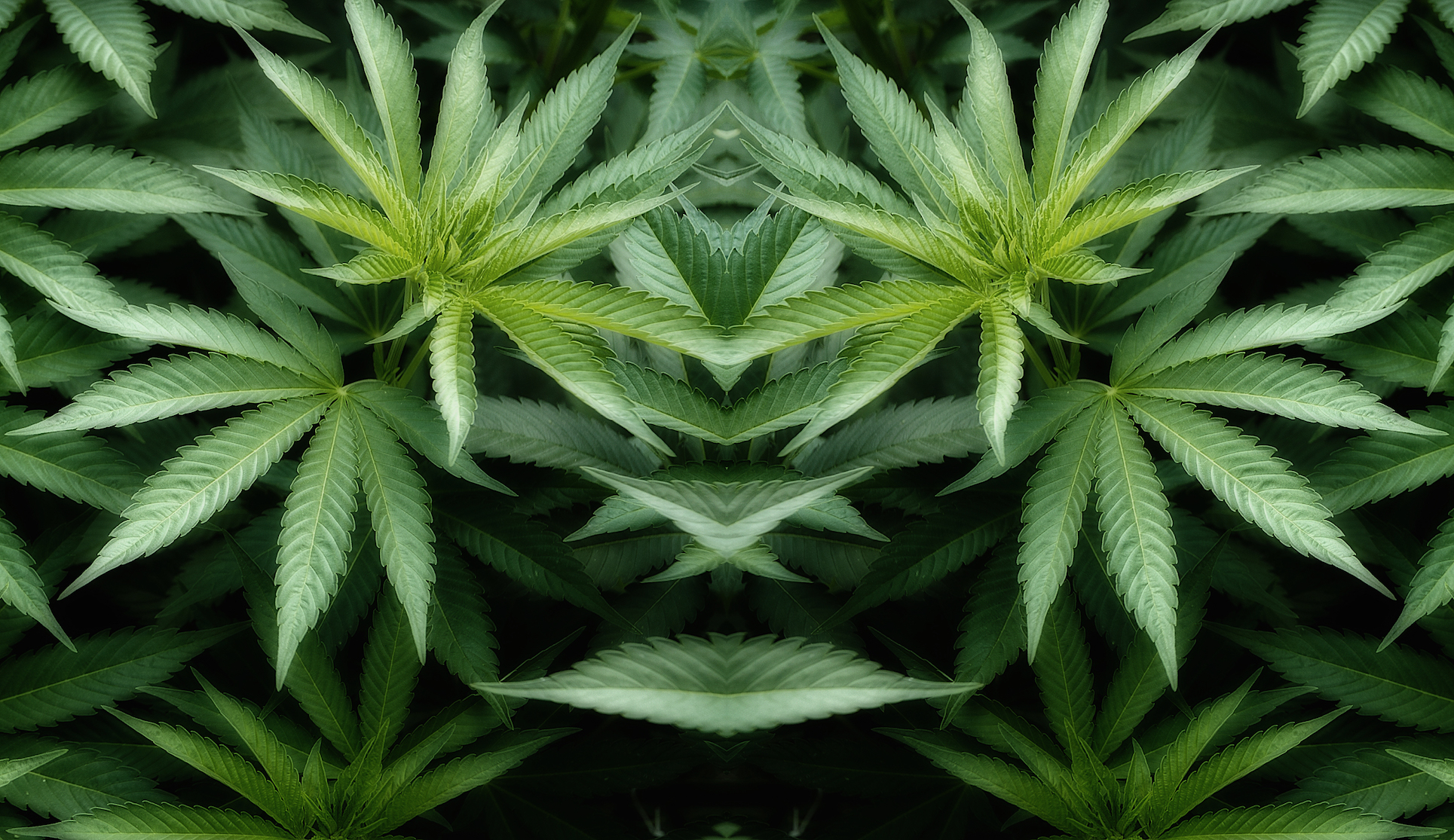


Leave a Reply
Want to join the discussion?Feel free to contribute!